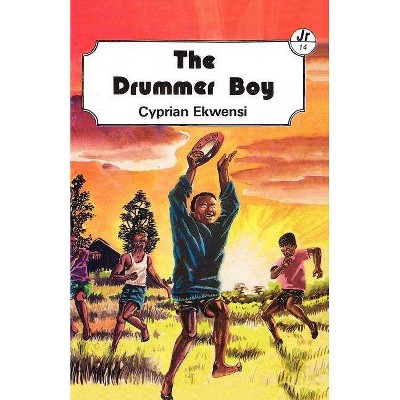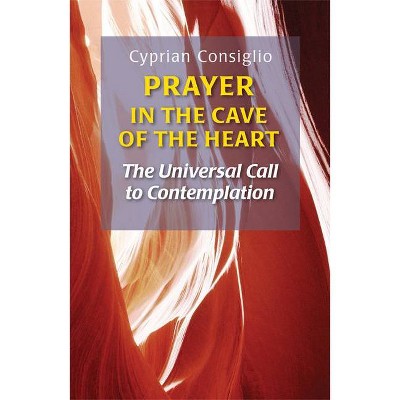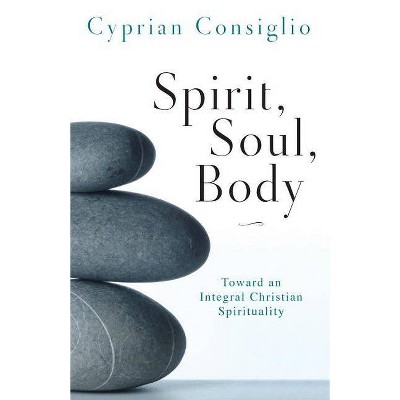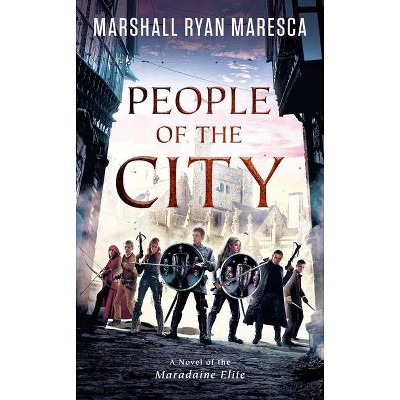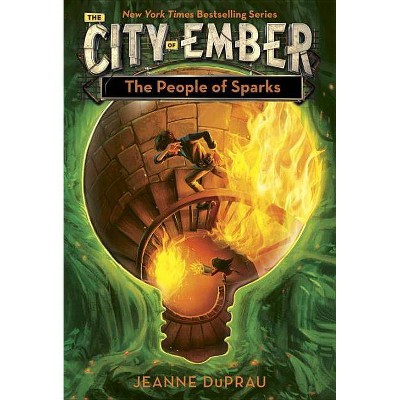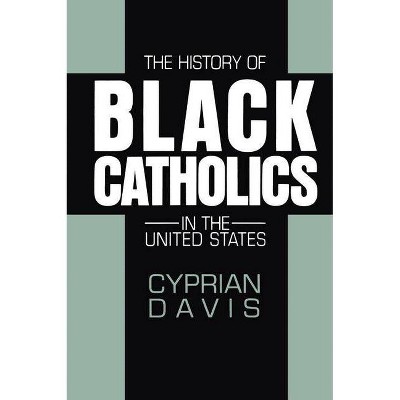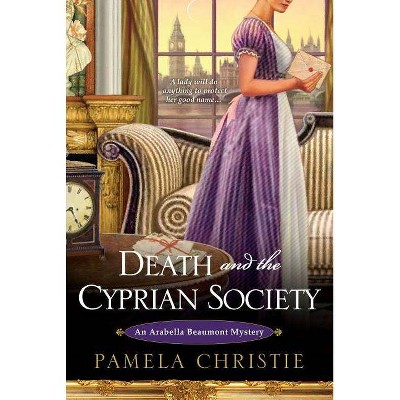People of the City - by Cyprian Ekwensi (Paperback)
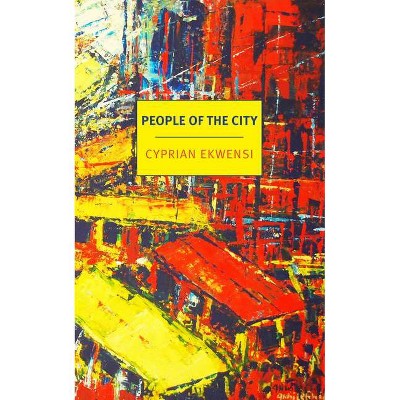
Similar Products
Products of same category from the store
AllProduct info
<p/><br></br><p><b> About the Book </b></p></br></br>"A vivid coming-of-age tale set in a big Nigerian city about a young man trying to make his way as a journalist and band leader in the big city. When People of the City was published in 1954 it was immediately acclaimed as the first major novel in English by a West African to be widely read throughout the English-speaking world. People of the City tells the story of a young crime reporter and dance-band leader in a great West African city who comes to see that what he can do for the developing country in which he lives is more important than the considerable and varied personal pleasures he can find in the hectic life of the city. Ekwensi's delicious first book book has the swagger, bravado, and elation of the great bands of West Africa"--<p/><br></br><p><b> Book Synopsis </b></p></br></br><b>A vivid coming-of-age tale about a young man trying to make his way as a journalist and band leader in a big Nigerian city.</b> <p/>When Chinua Achebe became the editor of the legendary Heinemann African Writers Series, one of the first books he chose was a collection of stories by Cyprian Ekwensi. <i>People of the City</i>, Ekwensi's early masterpiece, is the tale of Amusa Sango, a young man who travels from the country to a great and crazy city that is not named but might well be taken for Lagos, where he means to make a career as a crime reporter for the never less than sensational <i>West African Sensation</i> while leading a dance band whose calypsos and konkomas "delight the heart of city women." Amusa is a man on the make, looking for stories, success, sex, maybe even love, and he finds a lot of what he's looking for, though whether he can hold on to what he has and get what he wants is another story altogether. Ekwensi's delicious novel has the swagger, bravado, and elation of the great bands of West Africa.<p/><br></br><p><b> Review Quotes </b></p></br></br><br>Electric. . . . Ekwensi paints a vivid picture of cultural cacophony in a modernizing Nigeria filled with colonizers, revolutionaries, dreamers, and schemers. The mesmerizing tale and its feckless, frustrating protagonist provide stark glimpses into the class struggles, misogyny, and violence that often lurk beneath a bustling metropolis. --<i>Publishers Weekly<br></i><br>Lagos was a central character in much of Ekwensi's fiction, portrayed with undertones of the noir thriller, his episodic style mirroring the urgency and restlessness of the city. His lower-middle-class characters . . . are stripped naked in public, confront nasty landlords, battle inane bureaucracies, have pepper put into their vaginas, die of political violence, seduce powerful politicians, commit murder-suicides and contract sexually transmitted diseases; one senses verisimilitude in Ekwensi's unabashed melodrama. . . . The women did a lot of hip-swinging but they were often wonderfully bold. --Chimamanda Ngozi Adichie, <i>The Guardian <p/>People of the City</i> tells the story of a young crime reporter who doubles as a bandleader in a large west African city. As one British critic wrote, the novel said more about west Africa than 50 government reports. --Shola Adenekan, <i>The Guardian</i> <p/>One of the most prolific African writers of the twentieth century. --Charles Larson <p/>"Ekwensi saw [Nigeria's] contradictions more clearly than most. And he was unusual, at least among what we might call the first generation of Nigerian writers, in not merely depicting women as people in their own right, with their own wants and desires, but being unafraid to explore the kind of power they can exert over men. . . . He also remains the most cosmopolitan, the most at ease with exploring the 'existential loss' that is the modern Nigerian condition." --Adewale Maja-Pearce, <i>The Baffler <p/></i>Throughout the novel, Ekwensi critiques are electric, his narrative is mesmerizing. As such, <i>People of the City</i> is a vivid tale of class struggle and identity reclamation in the shadows of colonialism's reign." --Elisabeth Woronzoff, <i>PopMatters <p/></i><br><p/><br></br><p><b> About the Author </b></p></br></br><b>Cyprian Ekwensi</b> (1921-2007) was born into an Igbo family in a small city in central Nigeria and raised in the country's rural southwest. He studied Yoruba culture at Ibadan University College before matriculating at the School of Forestry. While working as a forestry officer in 1945, he began writing short stories, which were soon anthologized in both Nigeria and England. In 1951 Ekwensi moved to London on a scholarship to study pharmacy; in 1954 he published his debut novel, <i>People of the City</i>. After his return to Nigeria, he worked at the Nigerian Broadcasting Company and married Eunice Anyiwo, with whom he had five children. At the outbreak of civil war in 1966, Ekwensi took a post in the secessionist Biafran government. All the while, he wrote hundreds of short stories and radio and television scripts, as well as dozens of novels, including <i>Jagua Nana </i>(1961) and <i>Burning Grass </i>(1962), two staples of the Nigerian high-school curriculum. In 1968 he was awarded the Dag Hammarskjöld International Prize in Literature, and in 2006 he became a fellow of the Nigerian Academy of Letters. <p/><b>Emmanuel Iduma</b> is the author of <i>A Stranger's Pose</i>, a travelogue, and <i>The Sound of Things to Come</i>, a novel. His stories and essays have been published widely. Born and raised in Nigeria, he teaches at the School of Visual Arts in New York, and divides his time between Lagos and New York.
Price History
Cheapest price in the interval: 12.49 on October 22, 2021
Most expensive price in the interval: 15.69 on December 20, 2021
Price Archive shows prices from various stores, lets you see history and find the cheapest. There is no actual sale on the website. For all support, inquiry and suggestion messagescommunication@pricearchive.us
